Last Updated on 5 months
Finding the Perfect Fit: A Comprehensive Guide to Selecting Continental Performance Tires
Regarding high-performance tires, the Continental tire brand stands out as a premium choice for drivers seeking the perfect balance of performance, safety, and durability. With a diverse range of Continental Performance Tires available, selecting the right one requires carefully considering your driving habits, weather conditions, and vehicle compatibility. This article will help guide you through making an informed decision about which performance car tires from this well-respected brand are the ideal fit for your vehicle and driving style.
Key Takeaways
- Continental Performance Tires is known for its engineering, innovation, and consistent quality.
- A clear understanding of your driving habits and the weather conditions you typically face is crucial when choosing the right tires.
- Check tire size compatibility and your vehicle manual specifications before purchasing.
- Continental offers a variety of high-performance tire styles, such as Sports Summer Performance and All-Season Touring.
- Reading customer reviews and setting a budget can help determine the best tire choice within the Continental tire lineup.
Understanding Continental’s Legacy in Performance Tires
Founded in 1871, Continental has been a cornerstone in the tire industry for over 150 years. Focusing on a range of tire products from bicycles to commercial vehicles, the core business of this renowned tire manufacturer lies in passenger vehicle tires. The Continental Performance Tire brand is synonymous with high-quality engineering and premium products catering to the demands of many drivers.
Throughout its history, Continental has collaborated with luxury auto manufacturers such as Daimler-Benz, Porsche, and Audi, leading to the development of competition-winning race tires. Headquartered in Hanover, Germany, the company’s illustrious history includes crafting original equipment (OE) tires for premium brands like BMW, Mercedes-Benz, and Volkswagen Group. Their storied past and close relationship with vehicle producers emphasize Continental’s commitment to quality and performance in tire manufacturing.
“Continental’s collaboration with luxury auto manufacturers has led to the development of competition-winning race tires.”
Continental’s legacy can largely be attributed to its proud German engineering heritage, which is renowned worldwide for its attention to detail, precision, and innovative spirit. Incorporating this approach into their tire manufacturing process has ensured that Continental remains at the forefront of the industry, consistently producing top-of-the-line performance tires that exceed expectations.
- Exceptional collaboration with luxury auto manufacturers.
- Pioneering spirit and trailblazing innovations.
- A comprehensive range of tire products catering to various vehicle types.
- Consistent emphasis on quality, safety, and performance.
Continental’s dedication to pushing boundaries has led to various features and technologies that distinguish its tires from those of its competitors. These innovations not only enhance the durability and performance of Continental tires but also contribute to their reputation as one of the leading tire manufacturers in the world.
| Year | Notable Milestone |
|---|---|
| 1904 | The invention of the first automobile tire with a patterned tread. |
| 1952 | Development of the tubeless tire. |
| 1967 | Introduction of the first winter tire optimized for passenger cars. |
| 1999 | Launch of the ContiSportContact – a high-performance tire for sporty vehicles. |
| 2007 | Integration of the tire pressure monitoring system in mass-produced vehicle tires for improved safety. |
In summary, Continental’s unparalleled tire manufacturer legacy has been built upon its strong foundation of German engineering, deep-rooted partnerships with luxury vehicle manufacturers, and steadfast dedication to innovation, quality, and performance. Continental’s commitment to continuously developing groundbreaking technologies and cutting-edge tire designs solidifies its position as a leading performance tire brand in the automotive industry.
The Importance of Choosing the Right Performance Tires
Selecting ideal performance tires entails matching tire capabilities with one’s driving behavior and the prevalent conditions. Continental Tires presents options ranging from all-season performance tires for daily use to ultra-high-performance (UHP) tires for sports enthusiasts. These tires are designed for scenarios like highway driving, spirited riding on winding roads, or performance handling on the track, emphasizing the relevance of driving habits in tire choice.
Defining Your Driving Style and Conditions
Understanding your driving style is crucial in selecting the right performance target. Reflect on how you drive daily and identify the tire features that best support your needs. In the Continental tire options, various models cater to different driving habits, from smooth cruising to aggressive cornering.
Assessing Weather Patterns and Tire Tread Life
Understanding local weather patterns is essential in selecting tires that provide reliable performance and safety. Continental’s catalog includes versatile all-season tires conducive to varied conditions, superior gripping summer performance tires optimized for high temperatures, and Continental winter tires tailored for icy and snowy terrains. Verifying the anticipated tire tread life against past experiences and expectations can ensure continued satisfaction with the tire’s durability and performance.
Considering Tire Noise and Vehicle Longevity
Factors like tire noise consideration and the vehicle’s lifespan can influence tire selection for drivers concerned with ride comfort and noise. Options like the Continental PureContact LS focus on offering a quiet and luxurious experience. For those planning to sell their vehicle shortly, the balance between tire cost and expected duration of use merits attention. All Continental tires are designed with technologies that enhance vehicle longevity and extend tread life across varied models and sizes.
“The right tire choice can significantly impact the comfort and safety of your driving experience.”
To help you choose the right tires for your needs, here’s a comparison of three popular Continental tire models:
| Tire Model | Key Feature | Best Suited For |
|---|---|---|
| Continental ExtremeContact DWS06 | All-season performance with excellent wet and dry traction | Drivers looking for versatile tires suitable for various weather conditions |
| Continental ExtremeContact Sport | Optimized for high-performance handling and precise steering feedback | Enthusiasts seeking high levels of performance in both dry and wet conditions |
| Continental VikingContact 7 | Outstanding winter performance with reliable ice and snow grip | Drivers in cold climates with challenging winter conditions |
In conclusion, carefully considering your driving habits, environmental conditions, and vehicle needs will ensure the selection of a Continental tire that provides optimal performance and comfort.
The Distinction Between OE Replacement Tires and Aftermarket Options
Understanding the differences between OE replacement tires and aftermarket performance tires is essential for making a well-informed decision when selecting new tires that suit one’s driving preferences and vehicle compatibility. Continental, a reputable tire brand with diverse product offerings, emphasizes the importance of OE fitment for tire enthusiasts who value original quality and performance.
OE replacement tires are fitted from the factory on a new vehicle and are available through authorized dealers. These tires are designed with vehicle specifications, ensuring optimal performance and safety. In contrast, aftermarket tires allow drivers to customize their tire selection based on their preferences, such as enhanced performance or specific driving conditions. A more comprehensive array of options is available through aftermarket choices, allowing one to fine-tune one’s driving experience.
OE replacement tires are those that come fitted from the factory, while aftermarket options can be chosen for specific enhancements or driving preferences.
OE replacement tires can be an excellent choice for drivers who prefer to maintain the performance and feel of their vehicle’s original tires. In cases where authorized dealers may not have the desired products readily available, online retailers can be a convenient source for accessing OE tires. Knowing the tire brand, model, and size details ensures a seamless purchasing process.
On the other hand, aftermarket performance tires can provide an opportunity to explore a broader spectrum of choices within the Continental product lineup. Customization based on individual preferences, climate, driving style, or performance expectations means drivers can fine-tune their tire selection to accommodate their unique needs.
In evaluating the differences between OE replacement tires and aftermarket options, it’s essential to consider factors such as:
- Original equipment quality and performance
- Customization options
- Driving preferences
- Climate and road conditions
- Vehicle compatibility and specifications
Considering these factors, drivers can make an informed decision that balances the benefits of OE replacement tires’ original quality against the customizability and enhancements offered by aftermarket performance tires.
Exploring the Various Continental Tire Series

The Continental Tire series offers varied driving experiences, from luxurious comfort to extreme performance. There are options suitable for daily commuters and those passionate about high-octane street driving. Understanding the unique features and benefits of each tire in the Continental lineup can help you decide based on your driving preferences and needs.
From Luxurious Comfort to Extreme Performance
Drivers seeking luxurious comfort tires should explore the PureContact LS, designed to deliver a peaceful ride with a focus on wet-condition braking. The advanced engineering of this tire ensures decreased noise levels for an even more comfortable driving experience.
“The PureContact LS provides excellent wet braking capabilities with great road noise reduction, ensuring a peaceful and safe journey.”
In contrast, those looking for extreme-performance tires may prefer the ExtremeContact Sport, designed for high-octane street driving. With a tenacious road grip and specialized traction in dry and wet conditions, this tire is perfect for sports enthusiasts who demand the best performance from their vehicles.
The CrossContact LX25 is ideal for SUV drivers, providing all-season traction and noise-reduction technologies to enhance performance and comfort. Truck owners can benefit from the durability of the TerrainContact H/T, which is designed specifically for their vehicles’ needs.
Continuing the Continental lineup, the ExtremeContact DWS 06 is a reliable all-season tire featuring innovative tread wear indicators for differing conditions. Representing the pinnacle in winter tire engineering, the VikingContact 7 ensures safe operation in freezing temperatures, while the TerrainContact A/T is optimized for tackling off-road challenges.
- PureContact LS: Luxurious comfort tires
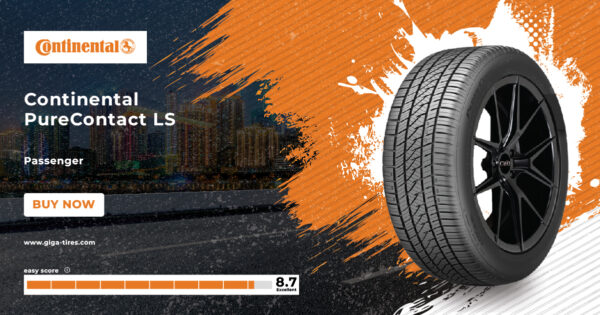
- ExtremeContact Sport: Extreme performance tires
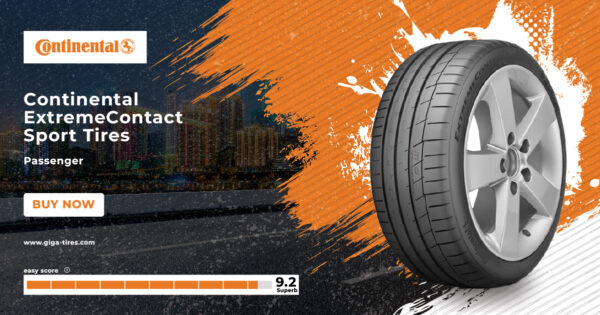
- CrossContact LX25: All-season traction for SUVs
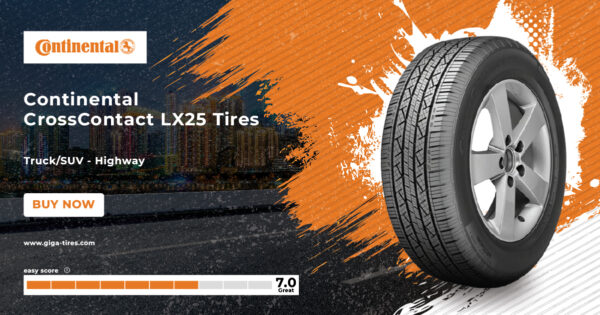
- TerrainContact H/T: Durable tires for trucks
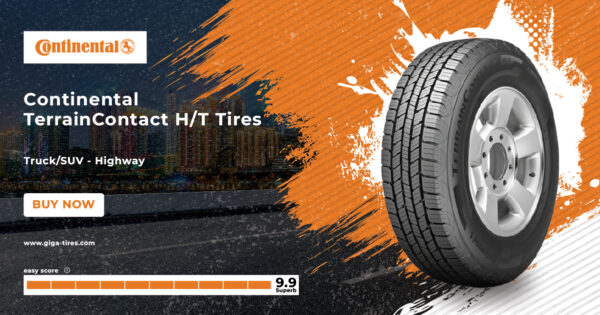
- ExtremeContact DWS 06: Reliable all-season tires
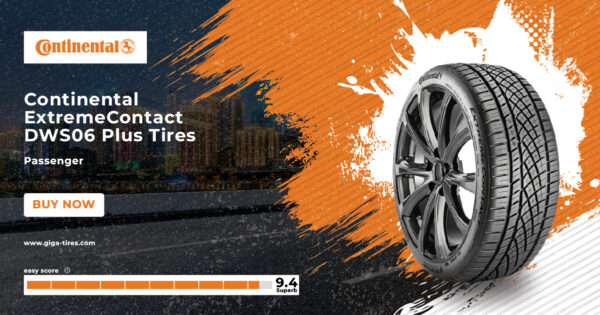
- VikingContact 7: Premium winter tire engineering
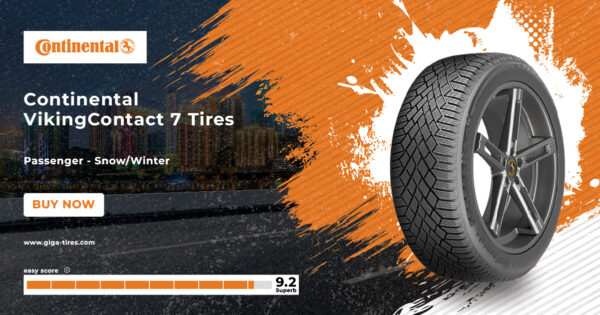
- TerrainContact A/T: Off-road optimized tires
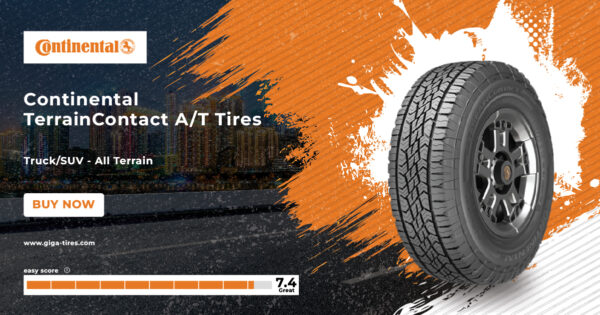
With a diverse assortment of offerings in the Continental tire series, you can confidently select the perfect tires to match your vehicle type, driving habits, and performance expectations.
Decoding Tire Specifications for the Best Fit
When selecting the perfect tire for your vehicle, it is crucial to understand the various tire specifications to ensure compatibility and safety. Continental offers a wide range of tire dimensions, making choosing the right tire that fits your vehicle’s requirements essential. Here, we will discuss the different tire specifications and how they impact your driving experience.
Understanding tire specifications is a vital step in ensuring compatibility with your vehicle’s specifications and optimal performance.
- Width: The tire’s width, in millimeters, measures the distance between its sidewalls.
- Aspect Ratio: Representing the height-to-width percentage, the aspect ratio gives you an idea of the tire’s overall shape and dimensions.
- Diameter: The diameter should match your vehicle’s wheel size, which dictates the tire size.
- Construction (Radial): Radial construction refers to the arrangement of cords within the tire and their relation to sidewalls. Radial tires offer excellent traction and improved wear characteristics over bias-ply tires.
- Load Index: Insurance of the maximum weight the tire can carry; the load index should be compatible with your vehicle’s recommendations.
- Speed Rating: The speed rating informs the tire’s maximum speed capability, which may affect tread wear and overall tire durability.
Ensuring compatibility with your vehicle’s specifications, such as ideal tire pressure and load capacity, is essential for optimal performance. Also, selecting a tire with the appropriate construction, load index, and speed rating guarantees maximum safety and reliability on the road. Always refer to your vehicle manual and manufacturer’s recommendations when choosing tires.
Table 1. An example of how to read tire specifications:
| Specification | Description | Example |
|---|---|---|
| Width | 225 mm | Width of the tire from sidewall to sidewall |
| Aspect Ratio | 45 | Tire height is 45% of the width |
| Diameter | 17 inches | The tire fits a 17-inch wheel |
| Construction (Radial) | R | Radial tire construction |
| Load Index | 94 | Max load capacity of 1,477 lbs per tire |
| Speed Rating | Y | Maximum speed capability of 186 mph |
In conclusion, understanding and decoding tire specifications can ensure the best fit for your vehicle and enhance your overall driving experience. Choosing the correct Continental tire dimensions will ensure compatibility with your car and promote optimal tire performance and safety on the road.
Performance Across Seasons: All-Season vs. Summer vs. Winter Tires
Analyzing All-Season Versatility and Durability
All-season tires are known for their versatility, as they are designed to perform well in various conditions, including mild winter weather. One of the primary attributes of all-season tires is their durability. Continental all-season tires, like the ExtremeContact DWS 06, offer enhanced tread life due to their advanced rubber compounds. This allows for a sportier driving experience while adapting to different environmental conditions.
All-season tires combine the best features of summer and winter tires, ensuring a stable and comfortable driving experience in most weather conditions.
Maximizing Performance with Summer Tires
On the other hand, summer performance tires, such as the Continental ExtremeContact Sport, are specifically designed to thrive in high temperatures. They offer precise handling and grip on dry surfaces, making them an ideal choice for performance-oriented driving. Thanks to their unique rubber compound and design, these specialized tires prioritize high-temperature traction, stability, and heightened sensitivity to road conditions. However, this may lead to faster tread wear when compared to all-season tires.
| Tire Type | Key Features | Ideal Usage |
|---|---|---|
| All-Season Tires | Versatile, durable, and suitable for various weather conditions | Everyday driving in moderate climates, year-round use |
| Summer Performance Tires | High-temperature traction, precise handling, increased sensitivity to road conditions | Spirited and performance-oriented driving in warmer climates |
In conclusion, choosing between all-season and summer performance tires depends on your driving needs and the prevailing climate. Assessing your driving habits and understanding your local weather patterns is essential in selecting a tire that provides the best possible performance and safety on the road. By carefully considering these factors and evaluating the available Continental tire options, you can make an informed decision and enhance your overall driving experience.
Investigating the Continental Lineup: Top Picks for Different Vehicle Types
The diverse range of Continental performance tires caters to various vehicle types and driving styles. Let’s look closer at the top picks in Continental’s lineup for passenger cars, SUVs and CUVs, and Trucks – both for on and off-road performance.
Passenger Cars
The PureContact LS is a popular choice for passenger car tires that balances driving comfort, weather versatility, and fuel efficiency. This tire features advanced construction and material design, offering a quiet ride and lasting assurance on the road. Its wide range of sizes and consistently high ratings make it a straightforward selection for varying vehicle types.
SUVs and CUVs
The CrossContact LX25 meets SUV performance and CUV tires’ needs, providing a comfortable, luxurious ride while delivering all-season traction and fuel economy. Its integrated sound-deadening technology and continuous ribs significantly bolster the driving experience, encapsulating Continental’s pursuit of tire excellence.
Trucks – On and Off-Road Performance
For trucks, the TerrainContact H/T delivers reliable all-weather performance suitable for the on-road demands and cargo-carrying duties these vehicles usually undertake. The all-terrain TerrainContact A/T extends this reliability off the beaten path, providing dependable traction in rugged terrains and highlighting its suitability for trucks with higher payload capacities and adventurous drivers.
Reading Consumer Reviews: Real-World Insights on Tire Performance
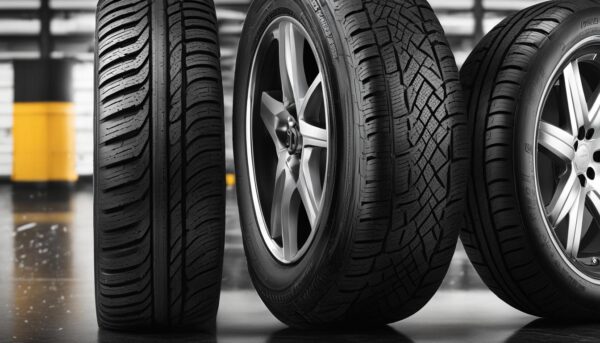
Consumer reviews provide valuable insights into Continental performance tires’ performance, durability, and satisfaction levels. Shared experiences from varied drivers can aid others in understanding the real-world implications of tire selection. These unbiased opinions supplement technical specifications and help guide potential buyers toward making more informed decisions.
For example, the ExtremeContact line receives recognition for its dry and wet grip, while the VikingContact 7 is notable for its proficiency in winter conditions. To further emphasize the importance of consumer reviews, we have compiled some of the most highly-rated tires according to real-world users:
| Tire Model | Strengths | Vehicle Types |
|---|---|---|
| ExtremeContact DWS 06 | All-season versatility, sporty handling, excellent wet traction | Passenger cars, sports coupes, performance sedans |
| PureContact LS | Comfortable and quiet ride, responsive handling, fuel efficiency | Luxury sedans, coupes, crossovers |
| TerrainContact H/T | Superior durability, all-weather performance, off-road capabilities | Trucks, SUVs, all-terrain vehicles |
| VikingContact 7 | Exceptional winter performance, adequate snow and ice traction | Passenger cars, SUVs, minivans |
Each of the tires above has accumulated positive reviews, with drivers expressing satisfaction regarding tire longevity and performance under various conditions. To further demonstrate how real-world experiences can inform tire choice, consider the following user quote:
“I can’t say enough about my new Continental ExtremeContact DWS 06 tires. The wet traction on these tires is absolutely amazing, and they also excel in dry conditions. I can tell they’ll last a long time, too. Overall, a great investment!”
This review exemplifies how hearing from those who have used the tires can add another layer of authenticity to your research beyond studying specifications and marketing materials.
In conclusion, utilizing consumer reviews of Continental tires is an excellent way to gain insight into real-world tire performance, ultimately guiding your decision toward the ideal set of tires for your driving needs and preferences.
Balancing Cost and Quality: How to Find Value in Performance Tires
Finding the right balance between performance tire costs, Continental tire quality, and tire value is essential when making a tire purchase decision. While premium Continental tires might come with a higher upfront price, their design for superior performance and enhanced engineering may provide better long-term value through sustained performance, as opposed to their more affordable counterparts.
By setting a realistic budget that considers potential initial expenditures, you can navigate the various options in the Continental lineup without sacrificing quality for cost. Savings can be realized in the long run by addressing factors such as durability and the likely need for fewer tire replacements.
In addition to cost considerations, Continental’s reputation as a leading tire innovator ensures you receive performance tires that meet or exceed your expectations. The company’s warranty obligations further add to the value proposition, extending peace of mind to consumers when investing in their performance tires.
When it comes to finding value in performance tires, it’s crucial to weigh the costs against the quality and value they provide. Remember that a higher upfront cost could potentially save you money in the long run due to improved engineering and durability.
Consider the following factors to make an informed decision regarding the ideal balance of cost, tire quality, and value:
- Set a realistic budget for higher initial expenditure on premium tires if necessary.
- Factor in potential long-term savings through reduced need for replacements and consistent tire performance.
- Recognize the importance of Continental’s reputation and warranty obligations in enhancing tire value.
Ultimately, making an informed decision regarding performance tire costs involves recognizing the overall value, tire quality, and performance you require. By prioritizing Continental’s lineup based on your unique driving habits, climate, and preferences, you can find performance tires that meet your expectations and provide the best bang for your buck.
Conclusion
When selecting the ideal Continental Performance Tires, there are several factors to consider, such as driving style, climate, vehicle compatibility, and budget. Continental boasts a heritage of engineering excellence, offering a wide range of tire options from comfortable all-season models to more specialized summer and winter choices. By following a tire selection guide and closely examining driving needs, weather patterns, tire specifications, user reviews, and the balance between cost and quality, drivers can make an informed choice to enhance their driving experience.
Throughout this article, we have explored the various tire series offered by Continental, noting the distinction between OE replacement and aftermarket options and decoding tire specifications for the best possible fit. Furthermore, we have analyzed how performance varies across different tire categories, such as all-season, summer, and winter tires, and shared top Continental tire picks for passenger cars, SUVs, and trucks.
In conclusion, having an in-depth understanding of Continental Performance Tires and the factors that impact tire selection can significantly benefit drivers regarding safety and overall driving pleasure. Whether the PureContact LS is for increased driving comfort or the ExtremeContact Sport is for a more exhilarating experience, the right Continental tires can make every drive outstanding.
FAQ
What factors should I consider when choosing Continental Performance Tires?
Consider factors such as tire brand reputation, driving style, weather conditions, vehicle compatibility, and budget. Additionally, assess whether you need all-season, summer, or winter performance tires to match your driving conditions and preferences.
What is Continental’s legacy in the performance tire industry?
Established in 1871, Continental has been a cornerstone in the tire industry for over 150 years. Collaborating with luxury auto manufacturers like Daimler-Benz, Porsche, and Audi and crafting original equipment tires for premium brands like BMW, Mercedes-Benz, and Volkswagen Group, Continental has built a reputation for engineering, innovation, and high-performance tire manufacturing.
What types of performance tires does Continental offer?
Continental offers a variety of performance tires to match different driving styles and conditions, ranging from all-season performance tires for everyday driving to ultra-high-performance tires for sports enthusiasts. Each tire type is tailored to differing scenarios, such as highway driving, spirited riding, or performance handling on the track.
How do I read tire specifications to ensure compatibility with my vehicle?
Check tire specifications such as width, diameter, aspect ratio, construction (radial), load index, and speed rating. Understand and match these specs to your vehicle’s manual to ensure compatibility, optimal performance, and safety.
How do I choose between Continental’s all-season, summer, and winter performance tires?
Consider your local weather patterns and driving preferences when selecting tires. Choose all-season tires, such as the Continental ExtremeContact DWS 06, for versatile performance in mild conditions. For high-temperature performance driving, select summer tires like the Continental ExtremeContact Sport. Consider winter-specific tires like the Continental VikingContact 7 if you face harsh winter conditions.
What are the top Continental tire picks for different vehicle types?
For passenger cars, consider the PureContact LS. For SUVs or CUVs, look at the CrossContact LX25. For trucks, choose between TerrainContact H/T for on-road performance or TerrainContact A/T for off-road adventures.
How can I find real-world insights on the performance of Continental tires?
Reading consumer reviews can provide valuable insights into Continental performance tires’ actual performance, durability, and satisfaction levels. Shared experiences from other drivers can help potential buyers make more informed decisions.
How should I balance cost and quality when choosing Continental performance tires?
While premium Continental tires may come at a higher upfront cost, they offer superior performance and long-term value due to enhanced engineering and durability. Set a realistic budget, consider the tires’ quality and warranty, and weigh the potential long-term savings against the initial cost.













 Français
Français Español
Español